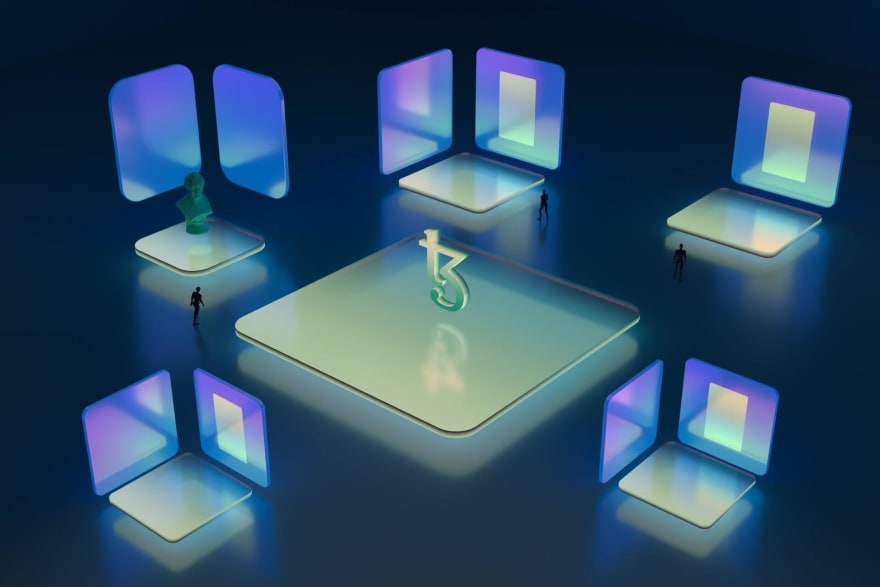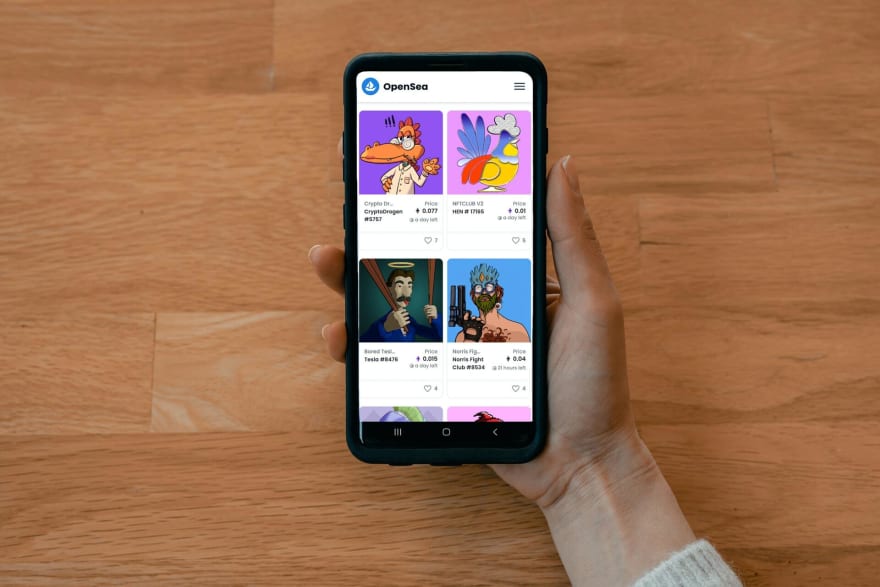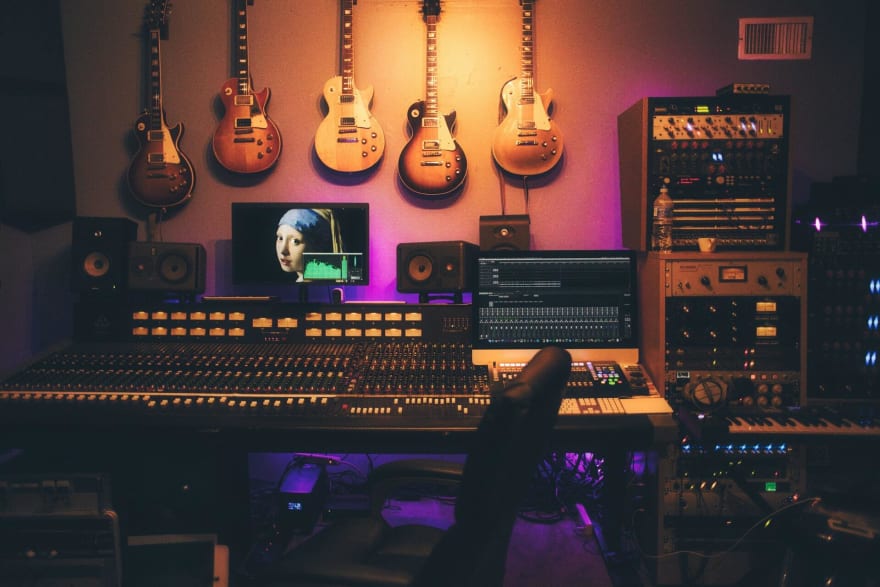NFTs have taken the digital space by storm. Reaching mainstream attention through social media and word of mouth. What started out as a way to prove ownership on the blockchain turned into a jpeg speculation mania like nothing we’ve ever seen.
Billions and billions of dollars have been transacted between individuals buying, selling and trading these digital assets. In 2020 the total value of the NFT market was $88 million. Fast forward to 2021 and that has almost 200x to $17 billion.
A quick summary of what an NFT is. An NFT(Non-fungible token) can be described as a unique digital asset representing real world assets like a painting, ticket or collectible, although any type of digital content can be created as an NFT. By utilizing blockchain technology NFTs are verifiable, transparent and secure. For an in depth look at NFTs read more here NFTs Disrupting technology or hype?
Although the spotlight has mostly been on PFP(Profile picture) style NFTs there is much more to this technology than just images of animals and rocks. NFTs can potentially be used in every digital industry. Here are 5 examples of the different types of NFTs currently being developed.
Profile Pictures(PFP)
The most well known and popular form of NFT. An image of a character that is meant to represent an online identity on social media. This type of NFT is where the adoption really accelerated. People began to use these profile pictures as a form of brand identity and ultimately a status symbol of sorts, showing that you belong to a certain community by owning one of their NFTs. Internet platforms like Twitter have integrated native support for PFP NFTs as well as a few other notable companies with NFT support in the works.
Popular PFP projects and their floor prices(lowest priced)
Bored Ape Yacht Club - 87ETH($93137)
Clone X - 9.5ETH($10000)
CryptoPunks - 55ETH($59005)
Art & Music
The art and music industry hasn’t had much change in the past few decades until NFTs came along and started a wave of innovation in the space. The idea of Art & Music being converted into a digital format is nothing new but the resulting benefits of converting them into blockchain digital assets are numerous.
Creators are often their own managers or signed onto a contract with questionable terms. What NFTs do for creators is that it allows them to be the sole owners of their creative content. Through blockchain technology you can now without a doubt verify ownership of a digital asset, be it a work of art or a hit new song. This creates a transparent environment for both sellers and collectors of art & music.
The power of NFTs enables creators to monetize their content in ways never seen before. Through the underlying code it is possible to program ownership. This means terms of sale, royalties and transfers can all be controlled by the creators. An example of this could be a piece of artwork that pays a royalty to the original creator forever whenever it is sold. For music, an artist could sell an NFT that allows fans ownership of their album and therefore a share of streaming royalties.
This creates a more favorable environment for creators to share their content and be compensated rather than relying on third parties that can be exploitive. Through NFTs creators can connect with their community and fans in whole new ways and also reward and incentivize them.
A few platforms building in the space
Digital art
OpenSea - https://opensea.io/
Magic Eden - https://magiceden.io/
Music NFTs
SoundMint - https://www.soundmint.xyz/
Opulous - https://opulous.org/
Gaming
The gaming industry is ripe for the adoption of NFTs. Already being a digital-first media means the integration of NFTs can be seamless and even unnoticeable. In game digital assets are popular among players, from skins to weapons and tools. This is where NFTs come in. By creating these in-game items as NFTs, players finally receive value for their time and energy through owning their digital assets and having full control over how they interact with them. Opening up the possibility of market places where players can buy, sell and trade their assets. These digital assets exist outside of the game environment and no longer need to be tied to a certain platform making it possible to transfer them between games.
Players in the space
Gods Unchained - https://godsunchained.com/
Illuvium - https://www.illuvium.io/
Gala Games - https://app.gala.games/
Utility
The use cases for NFTs goes beyond that of JPEGs and mp3s. There is real world potential where NFTs can replace existing systems. A digital asset with programmable terms of ownership. This type of utility lends itself well to industries like ticketing and membership services. The concept of digital ticketing is nothing new but imagine a ticket as an NFT that not only gives you access to events but perks such as discounts on merchandise, loyalty points and special access permissions. All of this from the comfort of your mobile device through QR code verification.
Documents related to legal, real estate and banking that require a third party for authentication can also utilize NFT technology to improve the process. By having these documents in the form of NFTs it opens up the possibility of removing these intermediaries from the equation by having the terms of use, sale and services programmatically defined, meaning the transaction cannot proceed until all conditions are met. Transactions are transparent, authentic and verifiable. Some scenarios remain gray and may require intermediary involvement but NFTs can reduce the footprint of third parties.
Example 1:
Sports team A sells tickets in the form of NFTs with only 10000 being special editions. This special edition ticket allows for priority seating, first access and a free signing with the players. These tickets are authentic, verifiable and easily transferable.
Example 2:
Buyer A purchases a home from Seller B. Typically you would require a lawyer, real estate agent and bank to be involved, all taking a percentage of the sale. With the home ownership in the form of an NFT, it can be transferred instantly with both payment and transfer verified on the blockchain. Removing the intermediaries reduces the time and costs involved in the transaction.
Virtual Worlds
The introduction of the metaverse made a huge splash in 2021. Companies like Facebook changed their name to Meta and crypto native platforms like Decentraland and Sandbox attracted millions in funding. The metaverse is shaping up to become its own fully digital economy based on digital assets. Owning a piece of the metaverse means purchasing NFTs that represent IRL(in real life) items such as land, property, merchandise, goods and services.

IRL companies have already begun to mark their territory in several metaverses. Companies like Nike and Louis Vuitton have purchased property in order to increase their exposure to an increasingly digitally native audience.
The metaverse could potentially be the next wave of social media. NFTs are at the core of this new economy by allowing brands and individuals to connect, play and exchange in a fully immersive digital world.
Brand Investments
Facebook's “Meta” - $10 billion for initial development
Samsung - Land ownership in Decentraland
Nike - Metaverse stores to display and sell merchandise
As the digital economy grows through concepts like the metaverse, NFTs play a key role in digital asset transfer. With the potential to become the de facto means of transaction of all forms of digital content. Creators and builders will continue to stretch the boundaries of this technology inventing novel use cases that will expand the utility of NFTs as well as increase their adoption. This technology is here to stay and where it goes from here no one knows but now is a great time to get involved. Build, create, learn and share.
How will you participate?
If you got something out of this and want to learn more about cryptocurrency, web3 & finance:
Follow me @jamiesventures for more articles like this. Thanks for reading!
Sources:
https://a16zcrypto.com/state-of-crypto-report-a16z-2022/











Top comments (0)